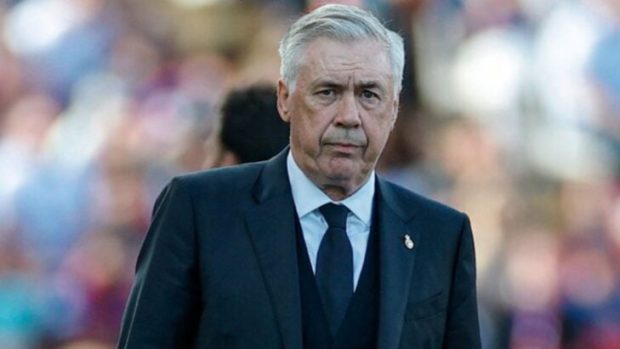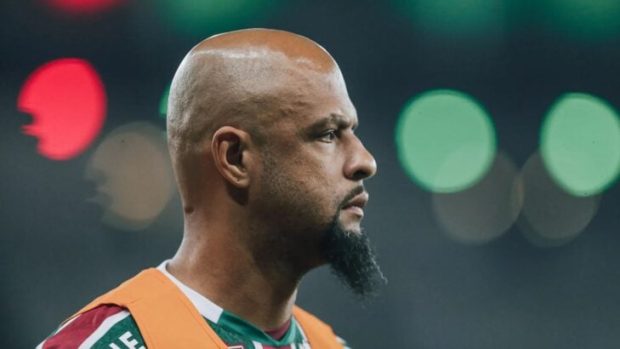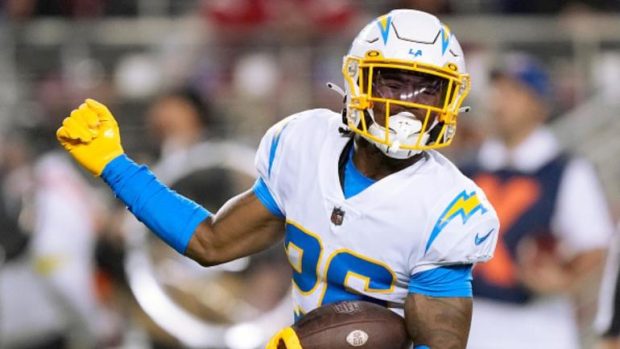MINNEAPOLIS — The most successful coach in Minnesota Timberwolves history almost certainly would be nowhere near his second straight trip to the Western Conference finals were it not for the pettiness of the school board in Reading, Pa., 24 years ago.
Back then, Chris Finch was finishing his fourth season as a head coach in Sheffield, England, and he was looking for a way to get home. He applied to be the head coach at Reading High School, a basketball powerhouse and one of the biggest schools in Pennsylvania. Finch knew the program well. He had starred at Wilson High School, just 5 miles up the road, in the 1980s.
Advertisement
That turned out to be a big problem.
Finch interviewed for, and was offered, the job of coaching the Red Knights, who were once coached by Princeton legend Pete Carril and boasted Donyell Marshall, Stu Jackson and Lonnie Walker IV among their famous alumni.
After years of moving around and chasing various coaching jobs, Finch envisioned going back home to Pennsylvania to set down roots. It was the kind of job people take not as a stepping stone to something better, but as the job of a lifetime, chasing championships and molding young minds as the pillar in the community that raised him.
“At the time, it was my dream job,” Finch said. “And it was kind of yanked from me due to local politics, which caught me totally by surprise.”
Finch was offered the job on a Sunday. On Tuesday, his candidacy was brought to the Reading School District board for approval, normally a slam dunk. But school board members got word that Finch was from Wilson, one of Reading’s biggest rivals, and rejected his candidacy.
“That was kind of a crushing blow because I was looking forward to coming back to the United States,” Finch said.
Finch had been coaching the Sheffield Sharks since 1997 and wasn’t sure where it was all going. As he bounced from England to Germany to Belgium, coaching teams like the Giessen 46ers and Euphony Bree, Finch was also applying to Division III coaching gigs in an effort to return home. He missed out on several opportunities but eventually coached the British National Team at the London Olympics and returned stateside with the Rio Grande Valley Vipers, the Houston Rockets’ developmental league affiliate.
Now in his fifth season as head coach of the Timberwolves, Finch is often overlooked in a league with high-profile leaders like Erik Spoelstra in Miami, Doc Rivers in Milwaukee, Steve Kerr in Golden State and JJ Redick with the Los Angeles Lakers. He may not be as well-known to the casual NBA fan, but in a franchise that has employed 16 coaches in 36 years, Finch has done with the Timberwolves what was once believed to be impossible — he has turned them into a legitimate contender.
Before Finch’s arrival halfway through the 2020-21 season, the Wolves had made the playoffs one time in the previous 16 seasons. They have qualified in all four full seasons Finch has been on the job.
Timberwolves Win History
|
Before C. Finch
|
Since C. Finch
|
|
|---|---|---|
|
Seasons |
31 |
5** |
|
Win pct |
0.396 |
0.566 |
|
Win pct rank |
Last |
8th |
|
Playoff app. |
9 |
4 |
|
Conf. finals app. |
1 |
2 |
|
**Hired as full-time coach on Feb. 22, 2021 |
In the 31 years before Finch, the Wolves had an NBA-worst .396 winning percentage and made it out of the first round of the playoffs once, when they advanced to the Western Conference finals in 2004. Under Finch, the Wolves have won 56.6 percent of their games — eighth-best in the league over that span. When they tip off against the Oklahoma City Thunder in Game 1 on Tuesday, they will be playing in their second straight conference finals.
Advertisement
“I’ve been in this stuff 27 years and been around a lot of great coaches,” Wolves lead assistant Micah Nori said. “But especially at the offensive end, he’s by far and away just the best I’ve ever seen.”
Getting back to this stage is an incredible feat, especially given the franchise’s history and the ground-shaking trade it made right before training camp opened when Minnesota sent Karl-Anthony Towns to the New York Knicks for Julius Randle and Donte DiVincenzo.
The Wolves heard boos in their own arena early in the season when they started 8-10 amid expectations that they would contend for a championship. Finch faced fan criticism for sticking with starters Mike Conley and Randle and not deviating from an eight-man rotation to give young players like Rob Dillingham and Terrence Shannon Jr. more run.
Five months later, Conley has delivered major moments in the first two playoff series, Randle has been nothing short of dominant and the Timberwolves enter their series against the heavily favored Thunder with unshakeable confidence that they can advance to the organization’s first NBA Finals.
Finch never panicked in a season of trial, even as he struggled into January to identify the right buttons to push with this team. In the end, he doubled down on what he believed in the face of outside resistance, leaned on the toughness he honed as a defensive specialist in college at Division III Franklin & Marshall and was validated every step of the way.
“The validation I feel is for what we’re doing overall as a program,” Finch said.
His players swear by him, lauding his fearlessness in holding everyone accountable, from Anthony Edwards at the top of the roster to the two-way players just barely holding on. His assistants marvel at his ability to adapt to what he has at his disposal and yet still stubbornly adhere to his core beliefs, no matter how much outside noise there is calling for change.
Advertisement
He is both intense and even-keeled, exacting and empowering, a coach who can call a rage timeout and yank a player for getting back-cut on defense while also displaying the empathy to start a seldom-used bench player because his autistic son was watching in the stands. The Timberwolves are following Finch into this fight because they know their coach will be swinging just as hard as anyone.
“He challenges every single guy,” Conley said. “Nobody’s exempt from that. Guys respond.”
The Timberwolves were reeling in the winter of 2021, nearly nightly losers with a 7-24 record and no real sense of direction. Former President of Basketball Operations Gersson Rosas fired coach Ryan Saunders, then drew heat for a highly unusual decision to replace him in-season with an outside candidate. Finch was an assistant coach in Toronto when he was hired but was close with Rosas from their days together with Rio Grande in the G League.
In 10 seasons as an NBA assistant, Finch had forged a reputation for being an offensive guru. Almost every team he landed on made a huge jump in offensive efficiency in his first season, including the Rockets going from 16th to fourth, the Denver Nuggets going from 17th to fourth and the Wolves leaping from 24th to seventh.
Finch is a thinking man’s coach, in constant pursuit of his idea of basketball nirvana — a free-flowing game in which the players read and react quickly and instinctively to what is happening in front of them, eschewing the heavy-handed playcalling and simple-minded pick-and-roll dominance that is so prevalent in the league today.
Year One Off. Rating Leaps with C. Finch
|
From
|
To
|
||
|---|---|---|---|
|
2011-12 |
Rockets |
16th |
4th |
|
2016-17 |
Nuggets |
17th |
4th |
|
2017-18 |
Pelicans |
26th |
12th |
|
2020-21 |
Raptors |
13th |
16th |
|
2021-22 |
Timberwolves |
24th |
7th** |
|
**2021-22 first full season as NBA head coach |
That can lead to mistakes, clunkiness and long scoring droughts, especially for young players like Edwards, who is still learning how to see the game three steps ahead. Early this season, it led to calls to bench or trade Randle because it took a while for him to get used to playing with Rudy Gobert in the frontcourt. It led to proclamations that the trade with the Knicks was a failure because Towns was lighting it up in New York and DiVincenzo couldn’t buy a 3-pointer.
Finch heard the clamoring for him to shut down the 37-year-old Conley and put Dillingham in at point guard to get him ready for the future. He heard the suggestions that Naz Reid should start over Randle. He heard that he was being foolish for continuing to put the ball in Edwards’ hands during crunchtime, only to see him miss another contested stepback jumper.

Chris Finch has empowered Anthony Edwards while also holding the young star accountable. (David Gonzales / Imagn Images)
If he bristled, it was done privately. He backed Randle and Conley to the hilt. He kept running the late-game offense through Edwards to get him the reps he needed and doubled down on the free-flowing offensive system that he believes is what the team needs to thrive.
Finch thought much of the angst was unfair because it was measuring a far different team against the backdrop of last year’s thrilling, and unexpected, run to the West finals.
Advertisement
“Often times the people who do track the narrative around a team, or around an individual or performance, are often the people that mentally can’t handle it anyway,” Finch said. “The people that could mentally handle the criticism most likely aren’t listening to it anyway. I always found that an irony.”
That is not to say that Finch is always a cool customer. He has been known to read his team the riot act in film sessions, as he did after a loss to the Utah Jazz on Feb. 28.
“He chose violence,” Nickeil Alexander-Walker said.
Anyone can get it when Finch’s ire is up, especially Edwards, the superstar whom Finch often credits with allowing him to be coached hard. When Finch gets after Edwards, Randle or Gobert, the three big-money veterans, it sets the tone for the rest of the team.
“He don’t sugarcoat anything,” Edwards said. “So that’s good for us.”
Finch was an admirer of Bobby Knight in his younger days, but he is far from that kind of taskmaster. He has an open-door policy with his players and will often be seen grabbing a seat with one of them after a morning shootaround and talking about what the player needs on the court. But the confrontational side of him hearkens back to his college days as the vocal leader at Franklin & Marshall, when he would challenge his teammates in the locker room if they weren’t doing their jobs.
“Everybody liked Chris, but he was a fierce competitor and there was no question that he wasn’t worried about your friendship if a game was on the line,” retired Franklin & Marshall coaching legend Glenn Robinson told The Athletic in 2021. “He was gonna tell you exactly like it was, and you had to hold up your end of the bargain or you were gonna hear about it.”
Chris Finch at Franklin & Marshall
|
Current Rank
|
||
|---|---|---|
|
Games |
119 |
T-2nd |
|
Steals |
253 |
2nd |
|
Assists |
532 |
3rd |
|
Blocks |
104 |
8th |
|
Points |
1,287 |
16th |
Finch is not lifting any of his Timberwolves players off the ground to get his point across like he may have done back in the day, but his tone resonates with a group that welcomes a challenge.
“Everyone gets it at some point in time,” Alexander-Walker said. “But then it’s all right, I’m gonna still rock with you, and I trust you to go out there.”
Advertisement
He knows that he can only go all fire and brimstone every once in a while. Playing that note too often in the NBA will get a coach tuned out in a hurry. But Finch puts himself in a position to go that route by building trust with his players the whole season. He gives players wide latitude on offense to play the game in front of them, encouraging struggling shooters to let it fly, understanding that turnovers are going to happen in a 48-minute game and letting youngsters like Edwards, Reid and Jaden McDaniels make mistakes.
He earned more goodwill in late March when he put veteran Joe Ingles in the starting lineup because his young son, who struggles with autism and is living in the family’s year-round home in Orlando while his father plays for the Wolves, had a breakthrough and was able to attend a game.
Randle has been one of the breakout performers of this postseason because Finch backed him the whole way, even with his previous struggles in the playoffs.
“Having a coach not only believe in you but challenge you every single day, when I came to Minnesota, that was the No. 1 thing I was excited about,” said Randle, who also played for Finch when he was an assistant in New Orleans. “Being able to play for Finchy because I just knew the type of coach he was, the belief he had in me.”
Finch won his 200th career game this season and already has more playoff victories (20) than the entire franchise had before he was hired (18). But this season has not been easy for him.
His gears were grinding through the first three months of the season while he struggled to find the right lineup combinations and help everyone move from a KAT-Gobert twin-towers frontcourt as their identity to a deeper and more versatile roster with Randle and DiVincenzo now on the team.
It took a blunt conversation with Timberwolves GM Matt Lloyd in January to help Finch find his way through the early slog. Lloyd is one of the most unflinchingly positive employees in the building, and he was sitting in Finch’s office and watching the coach pull his hair out over the team’s inconsistency.
Advertisement
“It seemed like he was just real frustrated with where things were going and in the time that it was taking,” Lloyd said. “He was really locked in on trying to make it work. And I just felt he was putting a lot of pressure on himself.”
Lloyd told Finch that he had to draw on his days in Europe, when he led ever-changing rosters with distractions galore. He told Finch that everything would work out in time, that there was too much talent on the roster and the coaching staff for it to fall flat.
“He just thought maybe I was coaching a little bit too rigid and too tight,” Finch said. “And he was right. I thought about it, and I was hard driving at the time. I needed to back off a bit, but I also needed to let some ideas flow.”
For a brief moment this season, Finch relaxed the rotation, giving Shannon, Dillingham and Jaylen Clark some minutes. The Wolves won eight of 10 games between Jan. 22 and Feb. 8 to regain their footing in the conference and start to build toward a playoff run. Lloyd’s perspective helped Finch relax ever so slightly, positioning the Wolves to finish the season 17-4, which got them out of the Play-In Tournament.
“We knew eventually he’d figure it out and, if anything, I was just trying to reassure him that everyone knew that it was gonna come together at some point,” Lloyd said. “He was going to figure out how to get it done the right way.”
Finch’s strict adherence to an eight-man rotation may have stunted the growth of youngsters like Dillingham, Shannon and Josh Minott. There were times during the season when the Wolves may have benefited from someone other than Edwards controlling things late in close games, which led to a 20-26 record in clutch-time situations. But it is hard to argue with the results.
The Wolves finished in the top 10 in both offensive and defensive rating, have gone 8-2 in the playoffs against the Los Angeles Lakers and Golden State Warriors and have watched this eight-man rotation find its rhythm at the exact right time.
Advertisement
“I hate to say it, but he almost just sees things and where they’re headed if we just stick to the process,” Nori said. “He’s very, very intelligent. The experience that he’s had, if he does something, he’s gonna see it through. He has a reason for it, he has a plan for it and usually, if you stick to the plan, it ends up working out as opposed to just scrapping something and starting anew.”
When Finch thinks back to the 4-1 loss to the Dallas Mavericks in the West finals last year, his mood turns somber. The Wolves had chances to win the first two games at home but couldn’t close them, which proved devastating in the series. Finch still thinks about it through gritted teeth.
“What motivates me about the Dallas series more than anything was that we probably got the game plan a bit wrong,” Finch said.
He said he regrets their defensive approach against Luka Dončić, Kyrie Irving and the Mavericks and thinks it burned them enough early in the series that they couldn’t recover.
“It might have been the wrong thing initially. And then when we pivoted, we had a hard time executing what we needed to do,” Finch said. “It felt like we were zigging and should have been zagging through that whole series.”
Most of the players said after the series that they were out of gas, that the emotional high of beating the defending champion Denver Nuggets on their home floor in Game 7 of the second round took everything they had. The quick turnaround for Game 1 of the conference finals did not allow enough time to refill the tanks.
Finch felt it as well. He suffered a ruptured patellar tendon in his right knee in the first round win over the Phoenix Suns and spent the rest of the playoffs sitting in the second row behind the bench, his leg propped up and throbbing with pain. Finch declined the painkillers prescribed by doctors.
Advertisement
“I wouldn’t take the painkillers because I didn’t want to become dependent on them,” Finch said. “And I didn’t want to feel during the games that I had any clouded thought processes.”
Nori couldn’t believe it.
“God bless him,” Nori said. “I mean, I would have taken the painkillers. Shoot, knowing his mind, they probably would have come up with some good offensive actions, and he would have been on some stuff.”
Everyone can laugh now, but Finch said one of the main emotions he felt after being eliminated was that it was “a mercy killing for me” because he was in so much pain.
“I was not happy that it was over,” Finch said. “It was just that I had been through a lot at that stage. … I think that’s one thing we learned as a team is what it takes just to go halfway.”
This year’s run-up to the conference finals has been markedly different. The Wolves blew past the Lakers and the Steph Curry-less Warriors in the first two rounds and got a five-day break before facing the Thunder. They look like a team that is more ready for this moment, and they will have to be. Oklahoma City won an NBA-best 68 games during the regular season.
This time around, Finch walks into this series with no pain in his knee and a fresh perspective on “the trials and tribulations” this team has endured to make it this far.
“There were times I was probably putting too much pressure on this year’s team because of last year,” Finch said. “Because we wanted to validate ourselves as a legitimate, top-end program.”
Two straight trips to the conference finals can bring a whole lot of validation. For a franchise that has never really been in a conversation like this before. And for a coach who could be preparing for his 25th season in charge of the Reading High Red Knights — if only he wasn’t from the wrong side of the tracks.
— The Athletic’s James Jackson contributed.
(Top photo: Ezra Shaw / Getty Images)
This news was originally published on this post .








Be the first to leave a comment